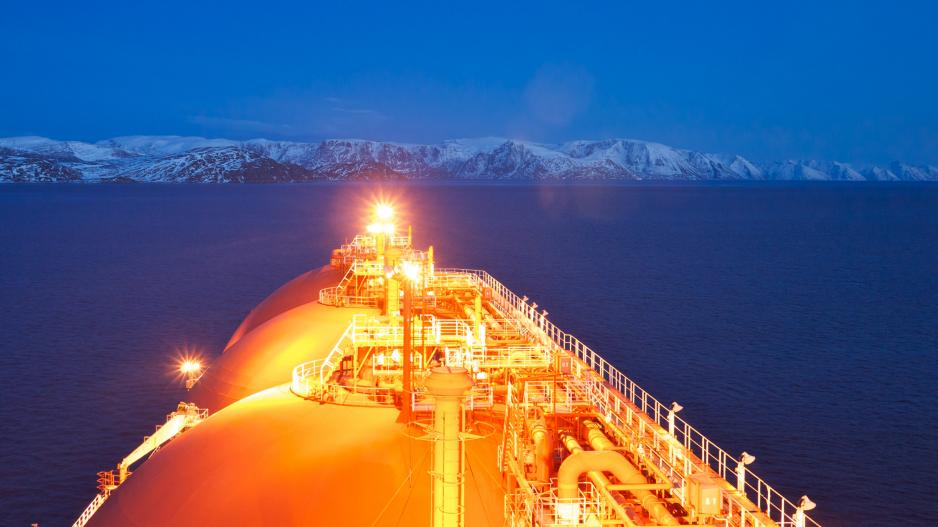As sanctions uncertainty looms, Novatek considers bringing LNG transshipments back to Norwegian waters
It's unclear whether new U.S. sanctions on Teekay, a COSCO subsidiary that ships some Yamal LNG will have long-term impacts.

Russia’s second-largest natural gas producer Novatek is eyeing a potential return to Norway to transship liquefied natural gas from its Yamal LNG plant, following new U.S. sanctions against one of its shipping partners. The company previously reloaded LNG near Honningsvåg with partner Tschudi Shipping Company.
[U.S. sanctions on COSCO hit LNG tankers in Russia’s Arctic]
In the wake of the new sanctions, which target a subsidiary of Chinese shipping operator COSCO, Novatek remains unsure how its operations will be affected and has started to make alternative plans. The company relies on a number of shipping companies operating under joint ventures with complex ownership structures raising questions about the impact of sanctions and if it is possible to negate them. Novatek says it is considering temporary reloading of LNG in Norway or Murmansk, which would allow it to use fewer ice-capable LNG carriers to mitigate the impacts of sanctions.
Ripple effect of sanctions
As previously reported by HNN last week, COSCO Shipping Tanker (Dalian) Company was hit by the latest round of U.S. sanctions targeting companies trading oil with Iran. COSCO, as part of a joint venture with shipping operator Teekay, owns six out of a total of 15 specialized Arc7 ice-class LNG carriers transporting natural gas from Yamal to Europe and Asia, thus making it a key shipping partner for Novatek. As a result of the sanctions the joint venture and its vessels became “blocked” by the U.S., placing in doubt their ability to transport LNG for Novatek.
While Novatek assured last week that “[it] has all the necessary capacities to ensure supplies of LNG produced to customers in accordance with contractual obligations,” and stressed that the sanctions were a business matter between Teekay and COSCO, it is now making contingency plans in case the vessels remain “blocked” for an extended period of time.
“We have nothing to do with the sanctions, but we don’t know if the sanctions may affect the ships owned by the (Yamal LNG shipping) joint venture,” explained Novatek’s Chief Financial Officer Mark Gyetvay at an industry conference, Reuters reported. “We have responsibilities before our customers to deliver LNG so we need to protect ourselves.” The company again stressed that it hoped its shipping partners could “get the issue resolved as quickly as possible.”
Considering return to Norway
Between December 2018 and June 2019 Novatek partnered with Norwegian Tschudi Shipping Company to transfer 123 loads of LNG from Arc7 tankers to conventional LNG carriers in two fjords outside Honningsvåg. This helped the company reduce the distance the specialized ice-class vessels had to travel to offload their cargo and allowed it to optimize their use.
Earlier this year Novatek stated that the Norwegian operation was a “one off” and future temporary reloading would be conducted off Murmansk. The company also aims to construct permanent transshipment hubs as early as 2022.
Novatek said it would “soon” announce a decision regarding new transshipment operations. While Murmansk provides for even greater distance savings compared to Honningsvåg, Novatek stressed that it would still have to secure government permissions. Murmansk’s waters are also busier and located in proximity to military areas. According to Bloomberg News, Gyetvay stated that the company has identified a suitable location and explained that “the importance of Murmansk may rise in the government’s decision-making process, particularly now with the sanctions on COSCO.”
Record deliveries to Asia
Potential impacts on transport logistics come on the heels of record levels of deliveries to Asia this past summer. Novatek managed to send 25 percent of all its shipments to Asia Pacific markets where natural gas prices are generally higher than in Europe. For all of 2019 the company had originally planned to increase deliveries to the Asian Pacific market four-fold over 2018. If impacts from the sanctions materialize, the company may yet have to re-focus deliveries towards Europe, where its logistics chain can benefit from transshipments and shorter sailing distances.